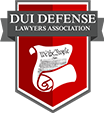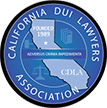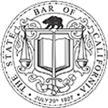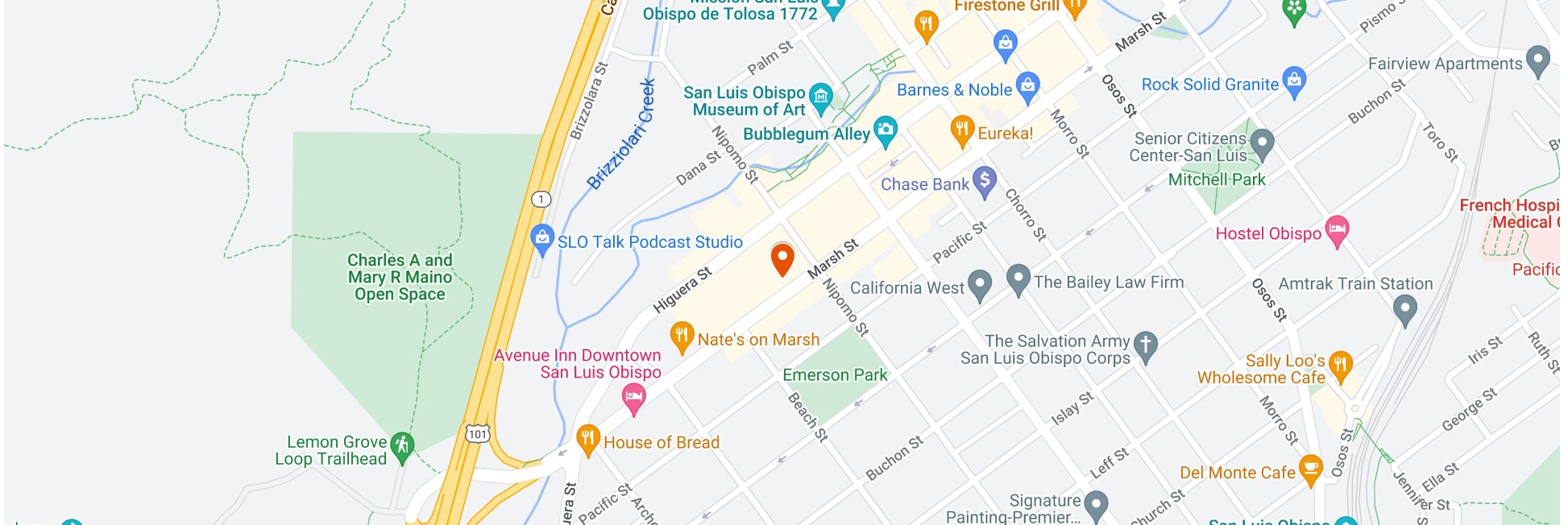California courts treat driving under the influence (DUI) as a priorable crime. Each time the police arrest you for a DUI offense within ten years, you could face more severe punishment than you did for the prior offense. The consequences of a second DUI conviction could range from license suspension and DUI classes to jail time and fines. The courts are strict with repeat offenders. If you face a second DUI offense charge, you must understand the legal options and defenses available. At San Luis Obispo DUI Attorneys, we can help you create the best defense to fight your charges.
The Elements Of A Second DUI Offense
Under California law, any previous DUI conviction on your record in the past ten years counts as a prior DUI. The ten years date to the time of your arrest. Other crimes like wet reckless also amount to a previous DUI. However, DUI arrests for which you did not face charges do not count as prior offenses.
Two systems will handle your second DUI offense, like a first-time DUI. The systems are the criminal justice system and the California DMV, each body will impose a unique punishment on you.
Penalties For A Second DUI
When the prosecutor charges you with a second DUI offense, you could face the following penalties:
- A two-year driver’s license suspension
- Installation of an ignition interlock device, usually abbreviated as IID
- Completion of an 18-month or 30-month court-approved California DUI School — This program includes bi-weekly interviews at the beginning of the program, drug and school education, and many group-counseling sessions. It also involves a community reentry-monitoring component.
- A fine of between $390 and $1,000 plus an additional penalty assessment that can amount to thousands of dollars
- A minimum of 96 hours to a maximum jail term of one year in a county jail
- Three to five years of probation — Probation for a second DUI offense will have some conditio The conditions of probation include avoiding additional criminal charges, submitting to a PAS test during traffic stops, and not driving with any measurable alcohol in your system. You could also be required to participate in a Mothers Against Drunk Driving program, Victim Impact Panel, or AA meetings.
Several substitutes for jail terms could be available for you. The substitutes include the following:
Electronic Monitoring
Some judges will monitor you electronically to ensure you do not leave certain areas. However, in most cases, the device restricts you only at night and allows you to go to work during the daytime.
Work Release
Most counties in California have a work release program where you will go to work and return to jail for the night or go to jail to work and go home to sleep.
Home Detention
If your record is relatively clean and you are sentenced to county jail, you can apply to the probation department to be monitored at home. You can do your entire jail term at home if the court grants you this option. However, you will be required to pay the probation department for each day of stay since this is a pay-to-stay program.
City Jails
Courts in most counties routinely approve private jails that are like city jails. You can stay in this jail that offers a more accessible and friendly environment than the dreaded county jail. However, you will be required to pay for your stay and stay there for the court-ordered period. After your jail time, you will be issued a certificate of completion.
Administrative Penalties For A Second DUI
If the police arrest you for a second DUI offense, the California DMV typically imposes administrative penalties. You will face penalties even if there is ultimately no conviction. The California DMV is the only authority that will or can suspend your driving license or give restricted licenses.
Two factors can trigger an automatic license suspension, including:
- Failing to request a DMV hearing within ten days of the date of the arrest or by losing at the hearing. This is referred to as an Administrative Per Se (APS) Suspension.
- As a result of a DUI court conviction.
If you request a DMV hearing, some of the rights you could have include:
- In addition, the DMV can only suspend your driving license once the hearing is over — This would help you handle your criminal defense, and you could evade suspension in some situations.
- You could request to have the police who arrested you present at the hearing and respond to your questions — This strategy not only allows you to challenge your DMV charges but could also reveal the shortcomings you could use in your criminal defense.
- You can ask for an in-person hearing instead of one done over the phone.
- You can hire an attorney to represent you during the hearing.
The court could suspend your driving license for two years if you face charges for a second DUI conviction. However, if there are no prior DUI on your record within ten years, the APS suspension is only for one year.
You could obtain a restricted license if you submit to a chemical test and show proof of installation of an ignition interlock device (IID). If you install an IID in your vehicle, you will be allowed to operate your car with a restricted license for one year.
If you refuse to undergo a chemical test upon arrest, your driving license will be revoked for two years. Unfortunately, you will not be able to obtain a restricted license during the two years. It is, therefore, essential to submit to a chemical test upon arrest to avoid severe penalties for a second DUI. In addition, this could secure you an opportunity to expunge your second DUI charge.
Aggravating Factors
A second DUI charge could attract severe penalties if certain aggravating factors are present, including the following:
- Driving under the influence while in the company of a minor passenger.
- Underage DUIs.
- Speeding while under the influence.
- Refusing to submit to chemical testing or a breathalyzer.
- Driving with a blood-alcohol content of 0.15% or higher.
The prosecutor could impose harsher penalties on you if the above factors apply to your case. The penalties could include the following:
- Community service.
- Higher fines.
- Mandatory participation in a substance abuse treatment program.
- Increased jail term.
If the prosecutor enhances the conviction to a felony, you could face prison time rather than a county jail sentence.
Other Repercussions Of A Second DUI Offense
You could face other repercussions besides criminal and administrative penalties for a second DUI offense. The repercussions include:
- Multiple points on your driving record, which could significantly increase your auto insurance premiums.
- Rejection of loans or financial assistance.
- Rejection from serving in the military.
- Rejection in colleges or universities.
- Rejection when seeking employment or getting fired from your current job.
The judge can impose additional punishment as part of your DUI probation, particularly if he/she believes you have not learned your lesson. An additional penalty could include the following:
- Having to wear a SRAM bracelet that detects whether you have alcohol in your system.
- Being sent to special programs to ‘’scare you straight’’ like those hosted by the organization MADD which confront you with people who have lost loved ones to drunk driving.
- Being committed to rehab.
- Being ordered to attend AA sessions or other alcohol treatment or drug treatment programs. You will be required to document your attendance and provide the evidence to the court you attended.
- Being ordered not to drink.
Expungement Of Your Second DUI Charges
The punishment for a second DUI offense could be severe, but still, you can bounce back to your everyday life after a second DUI charge. The law permits you to apply for an expungement of your second DUI conviction. An expungement will remove the charge from your criminal record. However, you must adhere to the conditions set by the state for the expungement.
Completing your probation will qualify you for a second DUI conviction expungement. This will only happen if you adhere to all the terms of your probation. You could petition the court to expunge your conviction after meeting the requirements. The judge will review your petition and determine whether you are eligible for the expungement.
You will have an opportunity to withdraw your guilty or no-contest plea once the judge accepts your petition. This will also allow you to enter a new not-guilty plea, and the judge could drop your charges. The judge will set aside the verdict and drop your charges if you did not plead guilty but were charged by a jury. However, if the prosecutor charged you with a felony involving a state prison confinement, you do not qualify for an expungement. In other situations, a skilled DUI attorney could negotiate to reduce your charges to a misdemeanor conviction, whereby you can apply for an expungement.
Defenses For A Second DUI Charge
Facing a second DUI arrest and conviction is a daunting but surmountable challenge. If you seek the services of a skilled DUI attorney, there is usually hope and the possibility of an acquittal or dismissal of your charges. However, you will only succeed if you act immediately after your arrest and hire a DUI attorney to examine your charges.
A lot of effort goes toward creating a convincing DUI defense. You need to contact a DUI attorney within hours of your arrest. The specific need to consult a DUI attorney to contest your DUI charges includes the following:
Plea Bargaining
A key benefit of hiring an attorney is that he/she could settle your charges satisfactorily. Most overwhelming DUI cases do not go to trial because skilled DUI attorneys know how to ‘’talk the talk’’ with District attorneys. In addition, your attorney's discussion with the district attorney could yield you a ‘’wet or dry’’ reckless charge which is a lower charge with less severe punishment than a DUI charge.
Gathering And Analyzing Of Evidence
A skilled DUI attorney understands how to gather and analyze any evidence that would come in handy in your defense. This could involve subpoenaing witnesses, which could support your charges. It could also include obtaining videos of the police stopping you and the accompanying audio recordings. For example, the police officer could claim that he/she stopped you because you had no front license plate. However, if the video reveals that the police did not see your vehicle's front plate, the police officer's testimony is invalid. Therefore, the court can conclude that the police did not have probable cause to stop your vehicle.
Legal Research And Writing
A competent DUI attorney will also use the evidence he/she gathered to put together written motions to support your charges. For example, if you believe that the police targeted you unfairly or treated you unprofessionally, your attorney could file a ''Pitchess motion’’. He/she could file this motion and schedule a hearing before the trial commences. The motion will allow your attorney to dig up dirt from the personnel file of the police, giving you an upper hand to fight your charges. If the attorney discovers that the police officer has a history of mistreating people, he/she can use this information for your defense.
Legal Defenses
The common defenses you could apply are the following:
Inaccurate Testing
When determining your blood alcohol level, the police use various equipment that can detect levels of alcohol in your breath or blood. However, these machines are not flawless and can malfunction. In addition, a mistake by the testing officer can render the test results faulty.
All breathalyzer and PAS tools must be calibrated and verified regularly for accuracy. Those records should also be made available for inspection. PAS machines are often faulty, and the results can change with the weather. The way the operator holds the machine will also determine the results. The prosecutor could consider reducing or dismissing your charges if one of the machines did not function properly.
Mouth Alcohol
The PAS device and other machines measure the level of alcohol in the air collected from the deep lungs. Unfortunately, in some situations, mouth alcohol can interfere with the testing and lead to faulty results. These cases are common in people who suffer from heartburn, acid reflux, and Gastroesophageal Reflux Disease (GERD). Additionally, using medicines that contain alcohol or mouthwash could interfere with PAS tests and provide faulty results. In this case, you could claim that mouth alcohol corrupted the results.
Lack Of Probable Cause To Stop Or Arrest You
A person is free from illegal search and seizure under the Fourth Amendment to the US Constitution. The arresting officer in a DUI case needs to have articulable and clear reasons for stopping a vehicle for a DUI investigation. The judge could dismiss your charges if the police fail to give valid reasons.
Frequently Asked Questions Regarding Second DUI Offense
Several questions arise regarding second DUI offenses in California. Some of the questions include the following:
What Is A ‘’Wet Reckless’’ Offense?
A ‘’wet reckless’ is another name for reckless driving involving alcohol, California Vehicle Code Section 23103. The prosecution could offer a plea bargain for a wet reckless if you have a good defense or the prosecution believes there is a weakness to the DUI charge, like an exact 0.08% chemical test result. However, if you face charges for another DUI within ten years of the wet reckless, then a wet is still a prior offense on your record.
Can It Be My Second Offense If My First DUI Offense Was In Another State?
You could be wondering if you face charges for a first DUI offense in another state, does a similar crime in California count as a second DUI offense? The California Department of Motor Vehicles (DMV) is usually in contact with other states. DMV often obtains information regarding DUIs from other states if an immigrant in California applies for a driving license. The courts in California will consider a previous out-of-state DUI charge as your first offense if you committed the crime less than ten years ago. The court will also consider the previous out-of-state DUI offense if the laws in your previous state are like those in California.
Do Second DUI Penalties Vary By County In California?
The statutes governing DUIs, and punishment apply equally in the entire state of California. However, your experience could differ slightly based on the county where the lawsuit was. DUI punishments in California have a range of minimum and maximum jail terms. Additionally, the severity of your conviction could depend on the tendencies of a local judge. Some judges impose harsher punishments, while others impose lighter penalties.
Because of this significant difference between counties, you need to consult a skilled attorney to handle your DUI charges in your county. Your local attorney has sufficient knowledge of the local courts and judges. He/she could also have long-term professional relationships with the judges and prosecutors. This experience and expertise are always necessary when contesting your DUI charges.
Find A DUI Defense Attorney Near Me
A second DUI charge, when the prior DUI charge or wet reckless crime was within ten years, increases the punishment, according to VC 23540. You could face longer jail time, a more extended DUI program, and hefty fines. In this case, you need a competent DUI attorney to walk with you. At San Luis Obispo DUI Attorneys, we have attorneys who understand DUI legal process and can help you create the best defense for your charges. Call us at 805-321-1000 and talk to one of our attorneys.







